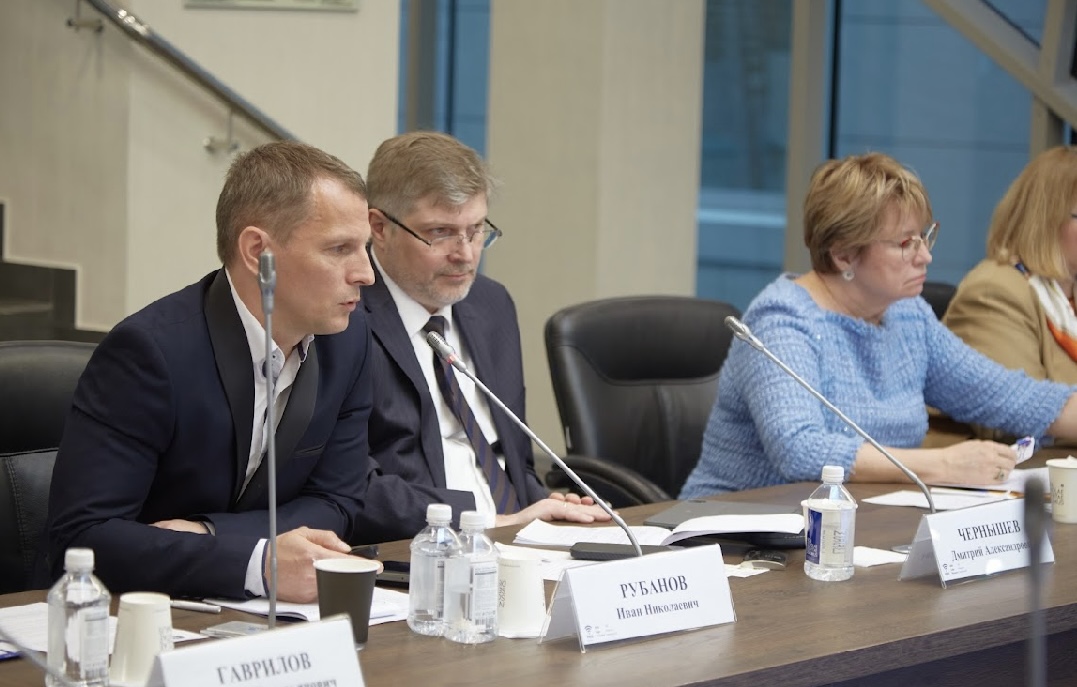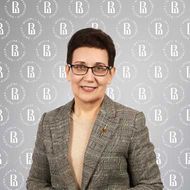- A
- A
- A
- ABC
- ABC
- ABC
- А
- А
- А
- А
- А
- HSE University
- Faculties
- Faculty of Economic Sciences
- School of Finance
- News
- Mechanisms for the National Carbon Market Stimulation Were Discussed at the Round Table between HSE and Sain-Petersburg International Mercantile Exchange
-
The School
- ABOUT
- Staff Members
- Doctoral Students
- Joint Departments with Partner Companies
-
RESEARCH ACTIVITIES
- Laboratories
- Series “Advanced Studies in Emerging Market’s Finance” at Springer Nature o Networking with International Academic Associations
- Networking with International Academic Associations
- Journal of Corporate Finance Research
- Research Seminars
- International PhD Workshop
- International Seminar “Systemic Risks in the Financial Sector”
- International Conference «ESG Corporate Dynamics: the Challenges for Emerging Capital Markets»
- Yasin (April) International Academic Conference
-
RESEARCH WORKING GROUPS
- Research Working Group "Innovations in the Banking Sector, its Financial Stability and Prudential Regulation"
- BUSINESS EDUCATION
- Networking with Business Associations
- Networking with Professional Associations
-
DATABASES
-
119049 Moscow, Russia
11 Pokrovskiy boulevard, room S629
Phone:
+7 (495) 772-95-90*27447, *27947, *27190
+7 (495) 916-88-08 (Master’s Programme Corporate Finance)
- Email: df@hse.ru
Head of Corporate Finance Research Center, Dr., tenured professor
The HSE School of Finance is the leading Russian competence center in the field of corporate finance, business valuation, banking, stock market, risk management and insurance, accounting and audit.
HSE is the first Russian university in the global ranking "QS - World University Rankings by subject", 2022 in the subject area of Accounting and Finance. Moreover, the university is the 1-st in the rating "THE World University Rankings by subject" in the subject area of Business & Management Studies, 2022
Grishunin S., Ivashkovskaya I., Brendeleva N. et al.
Journal of Corporate Finance Research. 2025. Vol. 19. No. 1. P. 25-40.
Badr I., Rawnaa Ibrahim, Hussainey K.
In bk.: Opportunities and Risks in AI for Business Development. Vol. 2: 546. Bk. Opportunities and Risks in AI for Business Development. Prt. 636. Springer, 2025. P. 385-399.
Financial Economics. WP HSE. HSE University, 2025. No. 1/FE/2025.

Mechanisms for the National Carbon Market Stimulation Were Discussed at the Round Table between HSE and Sain-Petersburg International Mercantile Exchange

The theme of the event carried out by the Exchange and Higher School of Economics on 26 April was Development of the National Carbon Market: Standards, Practices and Companies’ Performance. Irina Ivashkovskaya, head of the School of Finance of HSE University, and Dmitry Chernyshev, vice president of the Saint Petersburg International Mercantile Exchange, presided as chairpersons of the roundtable discussions.
The deputy Head of the Carbon Market and Innovation Projects Department of the Exchange Ivan Rubanov in his speech spoke about the carbon market development concept in Russia. He also made a presentation of the Policy of the Exchange for the development of trade in goods with verified carbon footprint and the corresponding Standard.
According to the speaker, the exchange mechanisms may be an effective incentive for green technology and energy transition in the Russian economy. They will provide an economic basis for transformation of instruments and business models in Russian companies.
Ivan Rubanov noted: “The main trend in the global market is development of compulsory mechanisms represented by emissions trading systems. They are based on market principles with active exchange trade, render possible establishing a general emissions limit, reduce emissions at minimal expense and form in the national market a new decision-making factor – carbon payment.
The spokesperson emphasized that the segment of Trade in Carbon Units had been created at a separate platform of the Exchange in the Electronic Trading System of the Non-Exchange Market. Besides, the Saint Petersburg International Mercantile Exchange plans to launch delivery futures for carbon units of the national register.
Participants of the roundtable discussion: head of the Division of Tax Exemption Methodology of the Department for Analysis of the Effectiveness of Preferential Tax Treatments of the Ministry of Finance Zalina Musaeva; head of the Center for Tax Policy of the Financial Research Institute of the Ministry of Finance Milyausha Pinskaya; head of the Department for Environmental Regulation and Management of Greenhouse Gas Emissions of LUKOIL Grigoriy Yulkin; head of the Environmental Safety and Decarbonization Department of LUKOIL Marina Chikovany; head of the Production Engineering and Sustainable Development Department of RusHydro Alexander Kraevoy; director for partnership programs development of RSHB Asset Management Aleksey Bogomolov; managing director of the Center for Digital GR Initiatives Vsevolod Gavrilov; representatives of Kept Verification LLC Vladimir Lukin and Ilarion Lemetyuynen.

Spokespersons indicated a range of problems in the national carbon regulation: insufficient separation of the voluntary market segment from the compulsory one, the focus on poorly monetized areas. A low demand for green assets and lack of stimulating mechanisms still pose a problem. Apart from that, fulfillment of national obligations for reduction in the emissions net balance by means of an increase in absorption by forests instead of anthropogenic emissions reduction will not ensure a fiscal and business effect as a part of developing foreign systems of carbon regulation.
The participants touched on the topic of comparative effectiveness of various instruments for carbon regulation and establishing a carbon payment. Some speakers pointed out that greenhouse gas emissions regulation by means of compulsory carbon regulation systems which imply emissions trading at stock exchange is more efficient as compared to the carbon tax.
At present Saint Petersburg International Mercantile Exchange (SPIMEX) is planning to establish a center for green assets trading. In some sections of the Exchange trading in secondary materials has been launched, a new section of Carbon Market has been introduced which is intended for trading of carbon units and units of emission quota compliance.
Saint Petersburg International Mercantile Exchange (SPIMEX) is the largest commodity exchange in Russia which arranges for trading in the markets of oil products, oil, natural gas, LPG, wood and construction materials, mineral fertilizers as well as in the derivatives market. Over a quarter of the main oil products supplied to the Russian domestic market are traded on the Exchange. SPIMEX accomplishes the mission of creating a transparent mechanism of fair price formation for Russian commodities. The Exchange was founded in May 2008. See the Exchange license and the clearing activities license on the website. The head office of the Exchange is located in Moscow.
- About
- About
- Key Figures & Facts
- Sustainability at HSE University
- Faculties & Departments
- International Partnerships
- Faculty & Staff
- HSE Buildings
- Public Enquiries
- Studies
- Admissions
- Programme Catalogue
- Undergraduate
- Graduate
- Exchange Programmes
- Summer Schools
- Semester in Moscow
- Business Internship
-
https://elearning.hse.ru/en/mooc/
Massive Open Online Courses
-
https://www.hse.ru/en/visual/
HSE Site for the Visually Impaired
-
http://5top100.com/
Russian Academic Excellence Project 5-100
- © HSE University 1993–2025 Contacts Copyright Privacy Policy Site Map
- Edit




